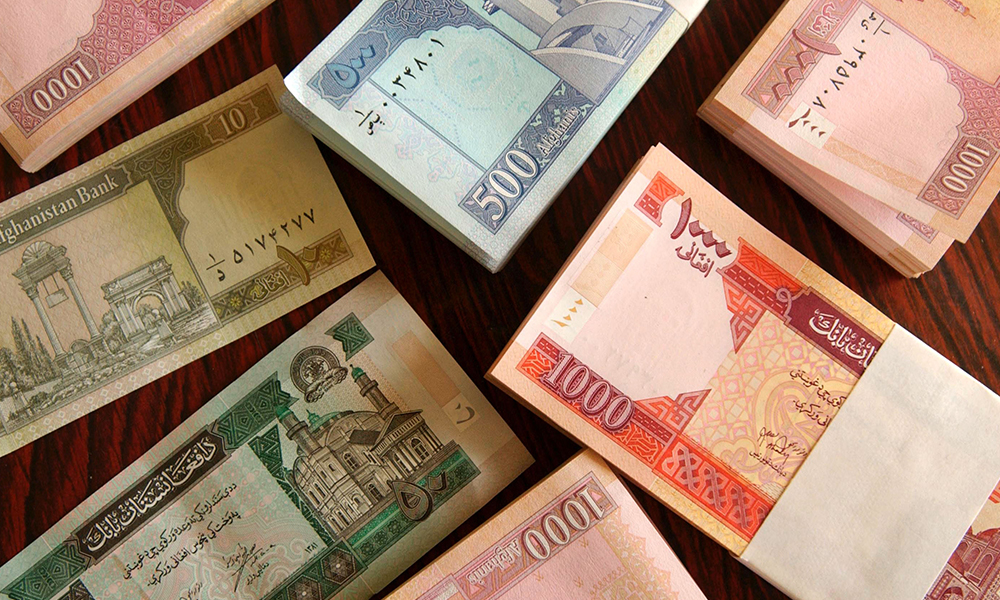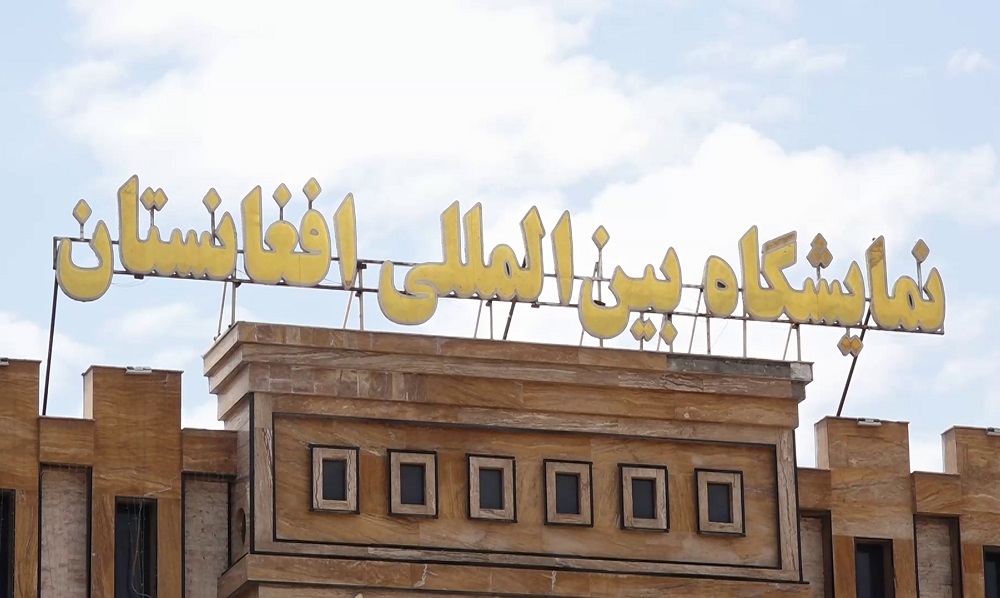Business
Afghani falls to record low amid pressing currency shortage

Economists are warning of an acute currency shortage in Afghanistan and the subsequent economic predicament as the Afghani has plummeted to its record low in trading.
The United Nations Development Programme (UNDP) issued a report earlier this week urging prompt actions to prevent the Afghan banking system from collapsing, which is now “in disarray” featuring inadequate liquidity and decreased deposits.
The largest currency exchange market in Kabul now has been crowded with people and the Afghani has dropped to its all-time low.
Before the Islamic Emirate of Afghanistan (IEA)’s takeover of Kabul in mid-August, one U.S. dollar was equal to about 70 Afghanis. But now the exchange rate hovers around 90 Afghanis to the dollar. The continued depreciation of the Afghan currency sparked fears among residents, with many flocking to the exchange market.
“Unfortunately in these two weeks the Afghan currency has been dropping down against foreign currencies with one dollar costing 95.5 Afghanis last week. Then the Afghanistan Bank released a statement that they will put 10 million U.S. dollars into the market, more than the 2.5 million dollars they actually took out. However, the price [of the U.S. dollar] didn’t go down but unfortunately have increased day by day,” said Zirak, spokesman from the all money dealers of Afghanistan.
Zirak said the country’s currency shortage was fueled by the combination of its assets frozen by the United States, the increasing domestic demand for U.S. dollars, as well as banks’ restrictions on dollar withdrawal.
The UNDP report noticed that non-performing loans in Afghanistan had increased from around 30 percent at the end of 2020 to 57 percent in September this year.
With the current trend and withdrawal restrictions, approximately 40 percent of the country’s deposit base will be lost by the end of 2021, said the report.
The currency shortage also comes along with rising prices. Some residents and businessmen in Kabul said that the prices of major commodities, such as food and fuel, have almost doubled compared with last year.
A Kabul resident is calling for the U.S. to release the frozen assets to save people’s lives.
“The U.S. blocked the money of Afghanistan, leading to the economic downturn. The poverty rate has reached its peak and people will die, so we urge the U.S. to release money of Afghanistan because [if not,] sure the people will die,” said Mustafa Bahram.
Business
Azizi calls on Malaysian investors to invest in Afghanistan

Nooruddin Azizi, Acting Minister of Commerce and Industry, met with representatives from the ministries of foreign affairs, defense and interior of Malaysia, along with other senior officials, on Wednesday and called on Malaysians to invest in Afghanistan.
The visiting delegation is being led by senior diplomat Dr. Shazelina Zainul Abidin.
According to the IEA’s foreign ministry, the two sides discussed bilateral trade, holding a business communication conference to strengthen trade relations between the two countries, the trade balance between Afghanistan and Malaysia, and creating a market for Afghan products, including carpets, cotton, and minerals.
According to the ministry, at the end of the meeting, the Acting Minister emphasized the increase of investment from regional countries in Afghanistan and called on Malaysian investors to also invest in Afghanistan.
Business
Afghanistan starts exporting via railway to Turkey

The Ministry of Interior says that Afghanistan has started exporting goods to Turkey via the Herat-Khaf railway line.
In a post on X, the ministry said: “Afghanistan’s exports to Turkey started in a calm atmosphere through the Herat-Khaf railway line.”
The ministry added that one train will run daily for a month and then two trains will run daily.
According to the ministry, the security of Khaf-Herat railway line is provided by the guards of the National Public Protection Agency.
Khaf-Herat railway project not only connects Iran and Afghanistan by rail, but also completes a 2,000-kilometer route along the east-west rail corridor from China, through Uzbekistan, to Afghanistan, to Iran, and on to Turkey and Europe.
As a landlocked country, this railway network will provide a safe route to connect with Europe via Iran’s railway network and Iran’s southern ports.
This railway line is strategic for trade between Iran and Afghanistan and will allow six million tons of goods to be sent between the two countries.
Business
Afghanistan, Kazakhstan to hold joint expo in Kabul

A joint expo between Afghanistan and Kazakhstan will be held in Kabul in the next four days, officials said on Sunday.
Officials of the Ministry of Industry and Commerce said that the two-day expo will be held for the purpose of expanding and strengthening trade relations between the two countries.
“This expo will be held as a follow-up of the Kazakh-Afghan international expo, which was held in the city of Astana, Kazakhstan, with the participation of a large delegation of the government and the private sector of the Islamic Emirate of Afghanistan,” Abdulsalam Javad Akhundzadeh, the spokesman of the Ministry of Industry and Commerce, said.
“At this expo, domestic products from different sectors of Afghanistan and the Republic of Kazakhstan will be put on display for two days.”
According to officials, 40 large Kazakh companies, and 40 large Afghan companies will exhibit their products.
Mohammad Saber Latifi, head of the Afghanistan International Expo Center, said that fruits, minerals and commercial services will be displayed at the expo.
During the expo, various memorandums of understanding for the trade of goods are also expected to be signed by companies.
-

 Latest News4 days ago
Latest News4 days agoRashid Khan named AWCC’s brand ambassador
-

 World4 days ago
World4 days agoMalaysian navy helicopters collide in mid-air, 10 killed
-

 Sport4 days ago
Sport4 days agoJaiswal ton powers Rajasthan to big IPL win
-

 World3 days ago
World3 days agoNorth Korea officials visit Iran in a rare public trip
-

 Latest News4 days ago
Latest News4 days agoAt least 1,500 families affected by recent floods: IRW
-

 Sport4 days ago
Sport4 days agoMawj Sahil player scores stunning halfway line goal in 1-0 win over Jawanan Wahedi
-

 Sport3 days ago
Sport3 days ago‘Serious talent’ Fraser-McGurk bonds with Warner to light up IPL
-

 Latest News4 days ago
Latest News4 days agoUS report cites ‘significant deterioration’ in Afghan women’s rights last year
























